News
Research: chlorine can make foodborne pathogens undetectable
25 Apr 2018Chlorine, commonly used in the agriculture industry to decontaminate fresh produce, can make foodborne pathogens undetectable according to new research led by the University of Southampton.

Chlorine, commonly used in the agriculture industry to decontaminate fresh produce, can make foodborne pathogens undetectable according to new research led by the University of Southampton.
Foodborne disease presents a consistent but frequently preventable threat to public health, the researchers note, and is responsible for an estimated 2.2 million deaths worldwide annually. In the UK, it is estimated that each year one million people suffer a foodborne illness, resulting in 500 deaths. The research team’s findings may help explain outbreaks of Salmonella enterica and Listeria monocytogenes among produce in recent years. The study highlights an impact of post-Brexit trade agreements, with countries insisting the UK import their chlorine-treated foodstuffs. This new research shows this may not actually be safe. As a consequence of the research one of the collaborators, Vitacress Salads, has become the first UK company to obtain supermarket approval to sell fresh produce washed in spring water without chlorine. “This important work is a major breakthrough, after 100 years of relying on chlorine to sanitise foods and drinking water, and may explain the many unrecognised or untraceable disease outbreaks relying on the gold standard of culture recovery,” said lead author Professor Bill Keevil, Head of the Microbiology Group at the University of Southampton. “The problem with fresh produce, such as lettuce and spinach, is that many people eat it fresh, so it misses the cooking step which would kill most pathogens, one reason why companies have relied on chlorine washing before sale.” “It will likely impact on post-Brexit trade agreements with countries insisting the UK import their chlorine-treated foodstuffs which this new work shows may not actually be safe because the sanitisation does not kill any bacterial pathogens present that are still capable of causing disease. One example is chlorine treated chicken carcasses.” In response to stress such as extreme temperatures, nutrient starvation, or significant dryness, some Gram-positive bacteria can form tough spores and survive for thousands of years in the environment. Bacillus anthracis, which causes Anthrax, is one example. Many bacteria, however, cannot form spores and instead survive a stress by entering a viable but nonculturable (VBNC) state in response to environmental stresses. In their study, the team incubated Listeria monocytogenes and Salmonella enterica populations on spinach leaves and then subjected the spinach to chlorine washes. The viable Listeria and Salmonella populations became VBNC by 50 and 100 parts per million (PPM) chlorine, respectively. Further experiments revealed that roundworms that ingested VBNC cells had shortened lifespans. Dr. Keevil added: “VBNC cells cannot be detected by standard laboratory culture techniques, presenting a problem for the food and water supply industries, which uses these techniques to detect potential disease contaminants. Chlorine induces the VBNC state in foodborne pathogens Listeria monocytogenes and Salmonella enterica and chlorine was ineffective at killing total populations of these pathogens. The data shows that VBNC foodborne pathogens can both be generated and avoid detection by industrial practices, while potentially retaining their ability to cause disease.” Dr Steve Rothwell from Vitacress Salads added: “Some years ago Vitacress recognised real consumer concerns regards the use of dilute chlorinated water in the preparation of ready to eat salads. “Through working with the University of Southampton the company was able to validate a first to market ‘spring water wash’. Instead of using chlorinated water to try to kill bacteria that might be present on salad leaves this natural process works by simply detaching them and flushing to waste.” “This latest publication further validates our adoption of an environment and consumer friendly wash process, suggesting that whilst chlorine washed salads may sometimes yield lower microbial counts, the chlorine could simply be hiding potential problems that we would see and address.”Related news
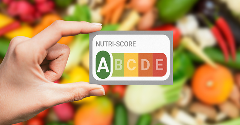
Danone removes NutriScore from products
20 Sep 2024
Following an algorithm update that gives some of its sweetened drinks a worse score, Danone has removed the front-of-pack label, NutriScore, from all of its products – putting profit before public health, say campaigners.
Read more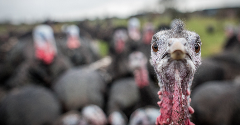
Diestel is first turkey producer to snag Regenifed certification
17 Sep 2024
In the US, Diestel Family Ranch, a family-owned turkey farming venture, has become the first producer to gain Regenified certification for its whole turkey and processed turkey product ranges.
Read more
Indonesia introduces new halal certification system
9 Sep 2024
International food and beverage companies importing halal products into Indonesia need to adhere to new rules after the country introduced a new halal certification system.
Read more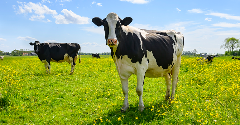
Tesco trials methane mitigation supplement for dairy cattle
5 Sep 2024
Tesco is trialing a methane-reducing feed supplement for one of its key UK dairy farms, sustainable UK milk producer Grosvenor Farms.
Read more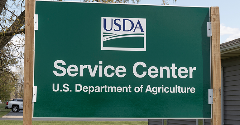
USDA launches new nutrition hub network
22 Aug 2024
The United States Department of Agriculture (USDA) will invest $4.5 million into providing nutritional advice and guidance across the US.
Read more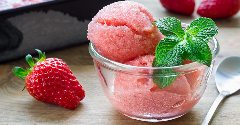
Better Juice expands its range to sorbets
16 Aug 2024
Food tech startup Better Juice has developed a technology to reduce the sugar content in fruit sorbets. The process retains the natural vitamins, minerals, and flavours of fruit, while offering manufacturers an easy-to-implement and scalable solution t...
Read more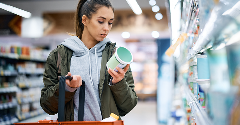
Sweden updates front-of-pack Keyhole labelling rules
11 Jul 2024
The Swedish Food Agency has announced updates to the voluntary Keyhole logo, used in four Nordic countries, following recommendations to improve nutrition labelling.
Read more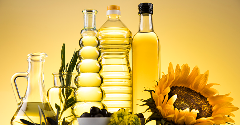
The seed oil backlash: How food and beverage brands are adapting
9 Jul 2024
There is a small but growing anti-seed oil movement, with some consumers perceiving seed oils – such as rapeseed oil and sunflower oil – as harmful for human health, despite the advice of nutritionists and assurances from dietary authorities.
Read more
Tesco launches laser-etched avocados to reduce plastic packaging
3 Jul 2024
UK supermarket chain Tesco is trialing a new laser-etched avocado range as part of its measures to cut down on plastic packaging and enhance its environmental profile.
Read more
Researchers tap into sticky rice as a potential source of clean label starch
8 May 2024
Pigmented waxy rice may prove to be a good source of clean label starch, according to researchers at the University of Arkansas.
Read more